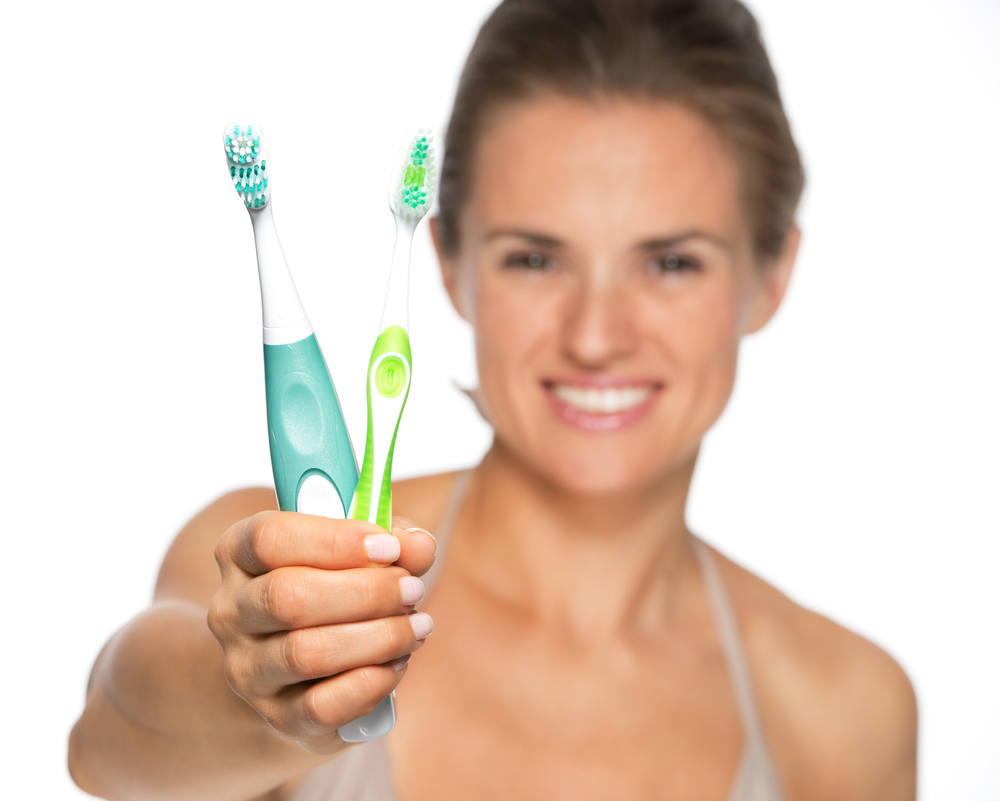
An essential part of maintaining excellent dental health is brushing your teeth twice a day for a full two minutes. Unfortunately, many people are unaware that the toothbrush they’ve chosen may be detrimental to their oral health. After all, with all of the toothbrushes available on the market today, ranging from soft to hard bristles, it can be challenging to know which toothbrush is the best one for your smile.
The Three Manufactured Toothbrush Bristle Types
Manufacturers make four different types of bristles in their toothbrushes:
Hard and Medium Bristles – Hard-bristled toothbrushes are only recommended for patients with poor manual dexterity in patients with poor oral hygiene or patients with joint issues. Those who struggle to grip a toothbrush properly or have difficulty applying adequate brushing pressure and technique may benefit from a firmer bristle. A hard bristle can ensure that the oral cavity is free of debris even with shortened brushing time and with less pressure. With all of the above information being stated and the advent of mechanical toothbrushes, today’s dentists rarely recommend using hard bristles.
Soft Bristles – The ADA recommends the use of soft-bristled brushes in almost 90 percent of the population. These bristles are typically arranged in varying heights to reduce pressure on the gum and increase pressure on the tooth surface to clean away plaque and food debris. As a result, the need for firmer bristles is redundant, and the different bristle lengths do the job quite well.
Extra-Soft Bristles – This type of toothbrush is commonly known as a “periodontal toothbrush” or a “sulcus toothbrush.” Those suffering from gingivitis, gum disease, receding gums, or periodontitis may find this type of toothbrush helpful. An extra-soft toothbrush is beneficial for anyone who has gum sensitivity or other oral health issues that require a gentle touch. If you suffer from sensitivity, ask your dentist if an extra-soft toothbrush could be beneficial.
Unique Benefits of a Soft-Bristled Toothbrush
When selecting the perfect toothbrush, whether you prefer an electric or manual, it is best to choose a toothbrush with ultra-soft bristles. Soft-bristled toothbrushes are the safest option for your teeth. When you use hard or even medium-bristled toothbrushes, it is easy to cause unnecessary damage to the tooth enamel, in addition to damaging your gums and tooth-root surfaces.
The American Dental Association recommends soft-bristled brushes for this reason. Soft, rounded bristles are the best choice for removing plaque and tartar buildup without causing damage to the surface of your teeth.
How Often Your Toothbrush Should Be Replaced
Whether you’re using a hard- or soft-bristled toothbrush, you should replace your toothbrush once every three months. Bristles will break down and lose their effectiveness after repeated use, and the older your toothbrush is, the harder it is to remove plaque from your teeth and gums. It is also highly recommended to changing out your toothbrush after you’ve recovered from an illness.
Always Use The Type of Bristle Suggested For Your Smile
After reading this article, you may be wondering if there is ever a reason for you to choose a hard-bristled toothbrush again. The simple fact that hard-bristled brush heads are more likely to wear away your tooth enamel and your gums mean that they are generally not the best option for anyone.
The best way to ensure you are using the right toothbrush for your smile is to discuss your options with your trusted dental professional. Our team at Hinsdale Dentistry can help you find the perfect toothbrush without the risk of destroying your enamel or your gums. Ask us for a personalized recommendation at your next cleaning and exam.